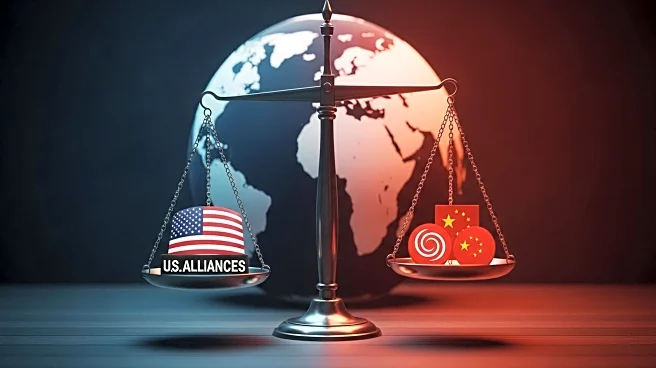What is the story about?
What's Happening?
President Trump’s aggressive trade and immigration policies are reportedly straining relationships with key U.S. allies, which are crucial for countering China's growing influence. Recently, hundreds of South Korean workers were detained at a Hyundai plant in Georgia over visa issues, causing diplomatic tensions. This incident is part of a broader pattern where Trump's policies have led to deteriorating ties with countries like India, which has faced tariffs for purchasing Russian oil. Despite attempts to maintain cordial relations, such as Trump's recent comments about Indian Prime Minister Narendra Modi, the overall sentiment among U.S. allies in Asia is one of concern over the U.S.'s protectionist and unilateral tendencies.
Why It's Important?
The strained relationships with U.S. allies could have significant geopolitical and economic repercussions. As these countries explore alternative alliances, there is a risk of them moving closer to China, potentially undermining U.S. efforts to counterbalance China's influence in the region. The economic impact is also notable, as seen in the Hyundai plant incident, which could affect U.S. industrial investments and trade. The situation highlights the delicate balance required in foreign policy to maintain strong alliances while addressing domestic policy goals.
What's Next?
The ongoing tensions could affect upcoming diplomatic engagements, such as a planned visit by President Trump to India for a summit with leaders from Japan and Australia. This meeting, part of the Quad strategic grouping, is seen as a countermeasure to China's regional influence. The U.S. administration may need to reassess its approach to immigration and trade policies to prevent further diplomatic fallout and to strengthen its alliances in Asia.

















